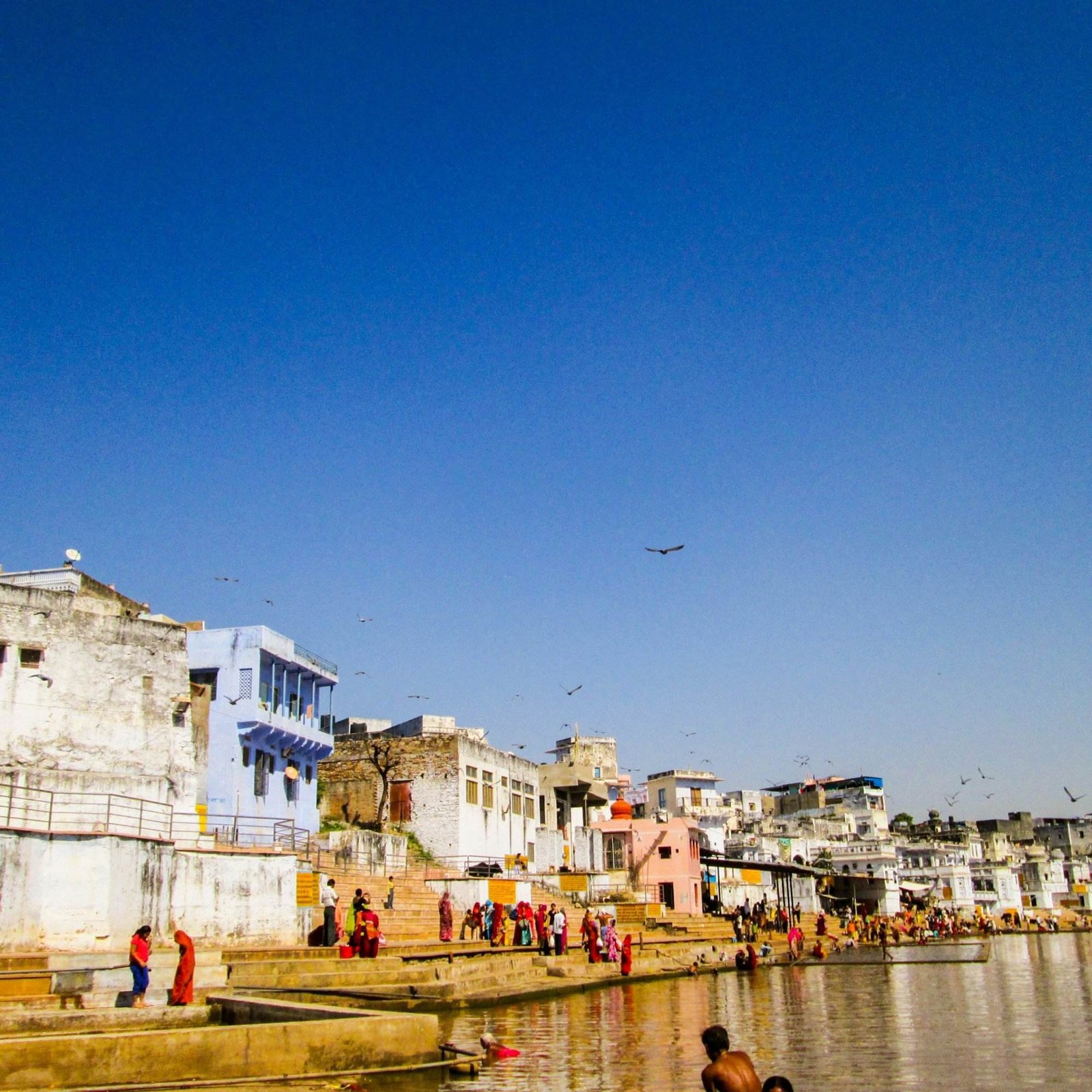Exploring India’s Golden Triangle – the vibrant cities of Delhi, Agra, and Jaipur – is a once-in-a-lifetime experience. However, with tourism’s rapid growth, it is more important than ever to consider sustainable and eco-friendly travel practices. As a responsible traveler, you can minimize your environmental impact while still enjoying the beauty and culture of this iconic route. If you’re booking through Luxury India Private Tours, this article will provide you with practical eco-friendly tips for your Golden Triangle trip, helping you make the most of your journey while leaving a positive impact.
1. Choose Eco-Friendly Golden Triangle Tour Packages
One of the easiest ways to start your journey on a sustainable note is to select eco-conscious Golden Triangle tour packages. When booking with Luxury India Private Tours, ask for options that emphasize sustainability. These may include stays at eco-friendly hotels, responsible tourism activities, and reduced plastic usage.
For instance, look for hotels that have adopted sustainable practices, such as using renewable energy, reducing waste, and conserving water. Many luxury properties across India, especially in Delhi, Agra, and Jaipur, have embraced these green initiatives. Choosing such accommodations is an important first step in promoting eco-friendly travel.
2. Travel Light and Pack Responsibly
Your packing list can make a significant difference in your ecological footprint. One of the most effective eco-friendly tips for the Golden Triangle is to pack light and consciously. Overpacking adds to the carbon emissions of your transportation, as heavier vehicles consume more fuel.
Carry reusable items, such as water bottles, shopping bags, and utensils. By avoiding single-use plastics, you’ll significantly reduce your waste. Packing eco-friendly toiletries like bamboo toothbrushes, solid shampoos, and organic skincare products is another great way to minimize your impact.
3. Opt for Green Transportation
Transportation accounts for a large portion of tourism’s environmental impact, and the Golden Triangle itinerary involves quite a bit of travel between cities. Instead of relying solely on private cars, consider greener transportation options. Many escorted tours of the Golden Triangle offer hybrid or electric vehicle options, and train travel is an eco-friendly alternative for journeys between Delhi, Agra, and Jaipur.
The Indian Railways network is extensive, and a train journey can be a scenic and sustainable way to explore the region. Not only will you reduce your carbon footprint, but you’ll also get a chance to experience the local culture more intimately.
For short distances, explore the cities on foot or rent a bicycle. Walking tours or cycling tours through heritage sites like Old Delhi’s bustling streets, the Taj Mahal’s serene surroundings, and Jaipur’s vibrant bazaars can offer a more immersive and eco-friendly experience.
4. Support Local and Sustainable Businesses
When you embark on your Golden Triangle private tour, make a conscious effort to support local businesses that prioritize sustainability. Whether it’s dining at a restaurant that uses locally sourced organic ingredients or shopping from artisans who produce eco-friendly crafts, your choices can have a positive impact.
Avoid mass-produced souvenirs and opt for handcrafted items that reflect the local culture and heritage. In Jaipur, for example, you can find exquisite textiles, pottery, and jewelry made by skilled artisans. Supporting these local businesses not only benefits the economy but also preserves India’s rich cultural heritage.
5. Minimize Waste and Leave No Trace
Another important eco-friendly tip for the Golden Triangle is to minimize waste wherever possible. Carry a reusable bag, say no to plastic straws, and be mindful of packaging when buying food or souvenirs.
If you’re exploring natural sites or heritage monuments, such as the Amber Fort in Jaipur or Fatehpur Sikri near Agra, make sure to leave no trace. Dispose of waste properly, and if no recycling options are available, take your waste with you until you can dispose of it responsibly. Preserving these beautiful sites for future generations is a key part of sustainable tourism.
6. Choose Eco-Conscious Rajasthan Tour Packages
If you’re extending your trip beyond the Golden Triangle to explore Rajasthan, opt for Rajasthan tour packages that focus on sustainable tourism. Many Luxury Rajasthan Forts Tour Packages and Luxury Rajasthan Desert Tours now offer eco-friendly options, such as stays in heritage hotels that have been restored with minimal environmental impact.
For example, the Luxury Rajasthan Forts and Palaces Tour Packages often include eco-conscious stays at palace hotels that conserve water and use renewable energy. Additionally, Rural Rajasthan tours can introduce you to the traditional ways of life in local villages while supporting community-based tourism.
7. Stay in Eco-Friendly Accommodations
When planning your Golden Triangle holidays, be mindful of your accommodation choices. Many hotels and resorts in the region now offer eco-friendly amenities, such as solar power, rainwater harvesting, and waste management systems. These sustainable stays are not only comfortable but also align with your environmental values.
During your 6 Days Luxury Golden Triangle Tour or Golden Triangle tour 5 days, prioritize accommodations that are committed to reducing their ecological footprint. This can be an easy yet impactful step in ensuring your trip remains sustainable from start to finish.
8. Participate in Sustainable Activities
Your Golden Triangle group tour can be both exciting and eco-friendly by incorporating activities that promote sustainability. Participate in cultural experiences that respect and preserve India’s traditions, such as cooking classes that use organic produce or heritage walks that focus on the conservation of historical sites.
If you’re including Pushkar in your Luxury Golden Triangle Tour with Pushkar, you can take part in environmentally conscious activities like camel safaris that prioritize the well-being of the animals and the preservation of the desert landscape. Similarly, Luxury Golden Triangle Tour with Rajasthan can be combined with eco-tourism activities that support local communities and protect the environment.
9. Practice Responsible Wildlife Tourism
India’s wildlife is a major attraction, particularly if you’re extending your Golden Triangle tour to include a visit to Rajasthan’s national parks, such as Ranthambore. While it can be tempting to include a wildlife safari in your 8 Days Rajasthan Tour Package or 10 Days Rajasthan Tour Package, make sure you choose responsible operators that prioritize animal welfare and habitat conservation.
Avoid any tours that promote close encounters with wildlife, as this can be harmful to both animals and ecosystems. Instead, opt for safaris that focus on conservation and education, allowing you to enjoy the natural beauty of Rajasthan without causing harm.
10. Conserve Water and Energy
In a country as populous as India, conserving water and energy is essential. During your Golden Triangle private tour, take small yet impactful steps, such as limiting your water usage in hotels, reusing towels, and turning off lights and air conditioning when not needed.
In Rajasthan’s desert regions, where water is particularly scarce, responsible water usage is even more important. Whether you’re exploring the forts in Jodhpur or the palaces in Udaipur, being mindful of your resource consumption helps preserve the region’s delicate environment.
Final Thoughts
Traveling through India’s Golden Triangle offers incredible opportunities to witness the country’s cultural, historical, and natural wonders. By following these eco-friendly tips for the Golden Triangle, you can ensure that your journey is not only luxurious but also sustainable. Whether you’re exploring the grand forts of Rajasthan or standing in awe of the Taj Mahal, your conscious travel choices can help protect these treasures for generations to come.




0 Comment